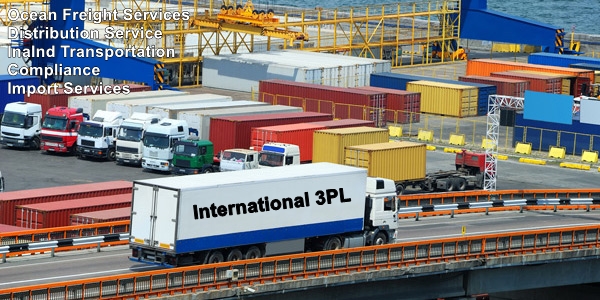Third party logistics providers (3PL) are a becoming an important part of today’s supply chain. These companies offer services that can allow businesses to outsource part or all of their supply chain management activities. Many 3PL companies offer a wide range of services including; inbound freight, freight consolidation, warehousing, distribution, order fulfillment and outbound freight.
many freight forwarding companies have evolved into third party logistics companies in order to be able to attract more businesses by introducing value added services which they outsource themselves to other providers.
The growth of 3PL companies has been driven by the need for businesses to become leaner, more efficient reducing assets and allowing focus on core business processes.
Selecting A Third Party Logistics Provider
Deciding to a use a third party logistics company is a decision that depends on a many of factors that differ from business to business and from location to location. The decision to outsource certain business functions will depend on the company’s plans; future objectives, product lines, expansion, acquisitions, etc.
Once a decision has been made to outsource certain processes then a company will begin a search for the right 3PL that fits all their requirements at the best possible price. There are three types of Third Party Logistics Providers or companies that operate today.
- Asset Based
- Management Based
- Integrated Providers
Asset based third party logistics companies use their own trucks, warehouses and personnel to operate their business. Management based companies provide the technological and managerial functions to operate the logistics functions of their clients, but do so using the assets of other companies and do not necessarily own any assets. The third category, Integrated Providers, can either be asset based or management based companies that supplement their services with whatever services are needed by their clients.
When selecting a 3PL, the request for information (RFI) or quotation (RFQ) should be as detailed as possible. The company that is selected should be able to fulfill all the logistics requirements and that can only be assured if every requirement is communicated to potential companies. The RFI should include a detailed description of the areas to be outsourced. This will usually include:
- The scope of the contract, including locations, facilities, departments.
- Information on volumes involved; number of deliveries, warehouse sizes, number of items, etc.
- The logistics tasks are to be performed, e.g. warehousing, transportation, etc.
- The level of performance required.
After the bids have been received by a company from the prospective third party logistics providers, an evaluation would take place where a multi-discipline team will review each bid based on a pre-defined set of criteria. These will include some of the following.
- Does the 3PL provide the services required?
- Does the 3PL have the technology required to perform the tasks required?
- Does the company have the required warehouse space, dock capacity, warehouse personnel, etc.?
- Is the 3PL financially sound?
- Are the 3PL’s geographical locations suitable to cover the network?
- Does the 3PL have the flexibility to respond to changes?
- Are the 3PL’s environmental policies compatible?
- Are the costs of the services detailed enough for comparison to other bids?
- Are the customer references acceptable?
- Is the 3PL a good cultural fit?
